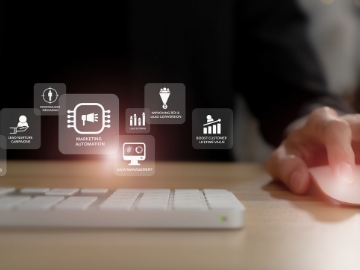15 Possible Second Interview Questions and Answers (With Tips)

The second interview is often the final step before a hiring decision, and it's your chance to show why you're the best candidate for the role. While the first interview focuses on basic qualifications and general fit, the second round typically dives into more in-depth questions about your skills, cultural fit, and how you'll contribute to the company's goals.
Understanding the types of second interview questions you might face and preparing example answers will help you stand out among qualified candidates and increase your chances of receiving a job offer.
The Difference Between First and Second Interview
A first interview is usually designed to verify your basic qualifications and determine whether you're a potential fit for the job description. This stage often covers your career goals, work history, and initial impressions of the role.
By contrast, the second interview goes beyond the surface. It's about gaining insight into how you think, your problem-solving skills, and how well you match the company culture and work environment. Employers may explore your motivation, your ability to be a team player, and whether your own work environment preferences align with theirs.
As noted in an interview from Salary.com, accuracy in the hiring process is essential: "Especially when they're doing interviewing and hiring, it's really incumbent upon them to make sure that everything is as accurate as it can be. Because if they're hiring people and the description's bad, it's never gonna go well." This reinforces why second interviews often dig deeper, ensuring both the role and the candidate are aligned before moving forward.
The hiring manager may also assess cultural fit, review your last job performance, and evaluate whether your career path aligns with the company's growth. At this stage, it's also common to discuss salary expectations and your potential job performance.
Most Common Second Interview Questions (with Answers)
Here are 15 common second interview questions and sample responses:
-
Can you describe a typical day in your current position?
Example answer: In my current position, I start by reviewing project updates, setting priorities, and coordinating with my team. I focus on delivering results that align with the company's goals while fostering collaboration. -
Tell us about a time you demonstrated problem-solving abilities.
Example answer: In my last role, I noticed reporting delays caused by redundant approvals. I proposed automating the process and led the rollout, which improved efficiency by 20%. It showed my ability to identify issues, design solutions, and collaborate across teams. -
How does our company culture align with your own career goals?
Example answer: From my research, I see your culture values collaboration and innovation-two things that drive me. In past roles, I thrived in similar settings where teamwork and new ideas were encouraged, which aligns with my long-term growth goals. -
How do you handle pressure in the workplace?
Example answer: I manage pressure by prioritizing tasks and communicating clearly. For example, during a product launch with last-minute issues, I organized quick team check-ins and reassigned tasks. We delivered on time, and the process reinforced the value of structure under pressure. -
What motivates you in your work environment?
Example answer: I'm motivated by clear goals, supportive colleagues, and growth opportunities. For example, I enjoyed leading a training project at my last job because leadership trusted me with ownership, which encouraged me to deliver my best. -
Can you describe your management style?
Example answer: My style emphasizes trust and accountability. I set clear expectations but give people autonomy. In one campaign, I kept weekly check-ins for alignment but let the team choose their approach, resulting in higher engagement and exceeding goals. -
How would you measure job performance in this role?
Example answer: I'd combine KPIs like project timelines with feedback from colleagues and clients. In my current role, this balanced approach ensures results are achieved while supporting collaboration and long-term growth. -
Why should we choose you over other candidates?
Example answer: I bring proven results and adaptability. At my last job, I exceeded sales targets while also creating onboarding materials that cut new hire ramp-up time by 30%. I can deliver outcomes and help others succeed. -
What is your approach to problem-solving?
Example answer: I define the issue, gather input, and test solutions. For example, I introduced an online approval system after consulting stakeholders, which cut turnaround time by 25%. My process is structured and collaborative. -
What salary expectations do you have?
Example answer: Based on industry research and my experience, my salary expectations fall within the competitive range for this role. I'm confident we can agree on a number that reflects my skills and the value I bring. -
Have you been in panel interview situations before?
Example answer: Yes, in a panel interview for my previous role, I made sure to engage each panelist equally, tailoring answers to their priorities. This approach built rapport and helped me secure the role. -
What would your first 90 days look like here?
Example answer: I'd focus on learning the company's processes, building strong relationships with my team and stakeholders, and identifying early opportunities to deliver quick wins. This approach shows initiative while also ensuring I understand priorities and align with the company's goals. -
Can you share a time you had only a few questions left to answer but turned the interview around?
Example answer: In a nerve-wracking first interview, I asked how the role contributed to long-term company goals. The question sparked discussion and allowed me to show strategic thinking, leaving a stronger final impression. -
How do you see your career path developing in our company?
Example answer: I see myself excelling in this role by mastering the responsibilities and consistently contributing value to the team. Over time, I'd like to take on leadership opportunities, mentoring others and supporting larger projects that impact the organization's success. Eventually, I hope to contribute at a strategic level where I can help shape initiatives and align them with the company's long-term vision. -
What marketing skills can you bring to this role?
Example answer: My marketing skills include strategic planning, digital analytics, and campaign execution. In one project, I combined SEO, paid ads, and email marketing to grow qualified leads by 25%.
Second Interview Preparation Checklist
Preparing well is crucial for succeeding in a second interview. Unlike the first stage, you'll be expected to provide deeper insights into your skills and experience. This checklist ensures you walk into the room ready to impress.
-
Review notes from your previous interview and prepare more detail about your skills:
Go through the notes you took during your previous interview to recall what was discussed and which areas the interviewer seemed most interested in. Prepare more detail for those points by adding specific achievements or metrics that strengthen your case. -
Research the company's work environment and company's goals:
Understanding the work environment will help you tailor your answers to align with how the team operates. Review the organization's mission statement, values, and any recent press releases to see how they're pursuing their company's goals. -
Prepare example answers that include direct references to the job requirements:
Look closely at the job description and identify the skills and qualities emphasized. Prepare example answers that include direct references to those requirements so the interviewer can clearly connect your abilities to the role. -
Anticipate second-round interview questions that assess your problem-solving abilities and management style:
The second-round interview questions often test your problem-solving abilities through situational or behavioral examples. Be ready to share how your management style has positively impacted teams or projects. -
Be ready to discuss your fit compared to other candidates:
The hiring manager may be making an important comparison between you and other candidates. This is your opportunity to emphasize what makes you a more valuable candidate, such as unique skills, relevant industry experience, or cultural alignment.
How to Answer Second Interview Questions
Clear, confident responses can turn challenging questions into your strongest selling points. Your answers should be structured, thoughtful, and tailored to what the employer values. Here are strategies that will help you craft strong responses:
-
Use relevant examples: When asked about a skill or experience, offer relevant examples from your past roles. Use the STAR method (Situation, Task, Action, Result) to provide structured, compelling answers that demonstrate your capabilities.
-
Highlight cultural fit: Companies often seek candidates who fit their company culture. Share stories or values that show alignment with the organization's mission, workplace norms, and your own work environment preferences.
-
Show confidence without arrogance: Interviewers are looking for a valuable candidate who can collaborate and contribute. Maintain a confident tone but avoid overstating your abilities. Support your claims with facts and results rather than opinions alone.
Mistakes to Avoid in a Second Interview
Even excellent candidates make mistakes that cost them offers. Here are pitfalls to avoid so you stand out for the right reasons:
- Giving the same questions and responses from the first-round interview without adding value.
- Avoid repeating your first-round interview answers word-for-word. Instead, build upon them with fresh insights and achievements.
- Overlooking your own motivation and personal goals.
- Be ready to discuss your own motivation for wanting the role and how it fits into your career goals.
- Ignoring opportunities to discuss two-way communication in the role.
- Show that you value two-way communication by asking thoughtful questions and showing engagement throughout the conversation.
- Failing to ask interview questions that show engagement.
- Prepare interview questions to ask the employer that reveal your interest in the company's future and your role in it.
- Not preparing for an important comparison task against other applicants.
Unique Second Interview Questions to Ask the Employer
The second interview isn't just for them to evaluate you; it's also your chance to evaluate them. These are some smart questions you can ask to make it an informative conversation:
- How does senior leadership see this role contributing to the final decision in projects?
- This shows your interest in how your work impacts high-level outcomes and decisions.
- Can you describe the recruitment process for internal promotions?
- Asking about the recruitment process for career advancement signals long-term commitment and ambition.
- What opportunities exist to align with the company's goals in the next year?
- This question positions you as forward-thinking and interested in contributing to strategic objectives.
- How does the company approach job performance evaluations?
- Understanding how they measure job performance gives your insight into expectations and success metrics.
- What does a typical day look like in this department?
Second interviews are your chance to prove you're the best candidate by showing deeper insight, confidence, and alignment with the company's goals. By preparing thoughtful answers, avoiding common mistakes, and asking meaningful questions, you'll stand out as a valuable candidate and move closer to securing the job offer.



